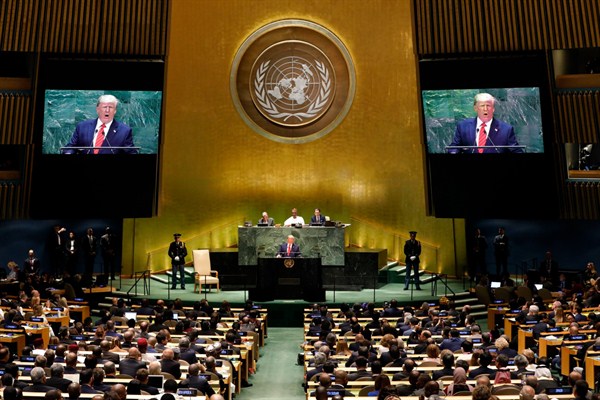This time every year, just as surely as summer yields to fall, the United Nations becomes the hosting ground of an annual ritual as fixed as the turning of the foliage or the migration of birds: the General Assembly. It traditionally serves as an opportunity for small nations to speak to the world about their progress or plead for help with problems—think the Pacific islands that are sinking under rising seas—and for countries in conflict to spin their cases, as one can expect this week from Iran and other actors in the inflamed Middle East.
Sometimes, the United Nations can be the stage for a reset, as when a new government takes over after a period of great corruption or national disgrace and seeks to make amends for the sins of its predecessor. Few venues, after all, lend themselves better to pious vows about commitment to democracy or the rule of law or respect for universal values.
It is in this context that in recent days I have been thinking ahead to a time in two years, or perhaps six—or, if an impeachment process gains decisive momentum, possibly sooner—when a new American president assumes office and will have to figure out how to reintroduce the United States to the world.

